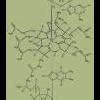Everything posted by mississippichem
-
Has the Republican party lost its collective mind?
Good for you. I don't trust a man who doesn't admit to having played D&D at some point.
-
Is BArGaIn theory a fantasy????
I assume you have an x-ray crystal structure for it if you've isolated it...
-
The Official JOKES SECTION :)
There was once a physics seminar so incredible that all the women in the audience immediately stood up and threw their [math] \langle x | [/math] 's at the stage. The lone chemist in the audience would've no doubt been impressed, but unfortunately he was passed out from overexposure to the [math] | \mathrm{RNH_{2}} \rangle [/math] he had been working with in his lab. For those of you who have lives: Bra-ket notation Amine
-
A notice to people asking questions related to the synthesis of dangerous or illicit substances
hypervalent_iodine already addressed this but I thought I would say it again in a different way to further get the point across: We already know how to make the illicit substances you might be trying to make! Trying to disguise your project as something else will not get past us. We had a poster not too long ago who was clearly to trying to gain the necessary knowledge to synthesis crystal methamphetamine [a stimulant that is illegal in the US, most of Europe, and many other places]. Before that post could receive any helpful response, myself and the other other regular chemistry "instructors" around here jumped on it. All this to say. Don't even try if your intentions are dubious, illicit, or shady. You can't fool us. Feel free to ask for legitimate help any time though, just be on the up and up about it. Science can be a dangerous hobby.
-
The Official JOKES SECTION :)
Two ways to go to jail: Next time you are pulled over by a policeman for speeding do one of the following: 1) Argue that his velocity measurement was made from a non-inertial reference frame. 2) Argue that the product of the position and momentum uncertainties he's claiming is less than [math] \hbar [/math] and therefore in violation of Heisenberg.
-
The Official JOKES SECTION :)
The electron actually gets paid for his drink.
-
No, you CAN'T make sodium!
CO isn't a strong enough reducing agent. [math] E^o [/math] for the reaction [ce] Na^{+} + e^{-} -> Na^{0} [/ce] is about -2.71 V relative to the standard hydrogen electrode. One would need a really strong reducing agent as the Na metal that would form will be very reducing itself.
-
No, you CAN'T make sodium!
Yes. It is in fact the preferred method of mass scale sodium production. They use doping agents to lower the melting temperature though. However, I doubt that anyone does this at the lab scale, liquid sodium chloride is some really nasty stuff.
-
The Official JOKES SECTION :)
What's the name of this compound?...Ferrous Wheel
-
The English Lisp
True, Americans are very unforgiving of politicians and any little quirk a politician has is sure to hurt him somehow. For example during the Bush years it became a common joke to poke fun at George's pronunciation of the word "nuclear". Bush would say "nookyoolar" will most here in the states say "nooklear". Not a huge difference but entertaining to American audiences [ruthless mob].
-
Why is there no forum for (insert field here)?
We need an underwater basket weaving forum for the eccentrics among us
-
Why does China have so many people with high IQs?
I have friend who studies abroad in China. He said Chinese parents push their children very hard in school because they all eventually have to take a standardized test that's name basically translates to the "tall test". The "tall test" determines if a child will be eligible for college, a trade program, or nothing at all. A child gets to take the test once and only once, so there is a lot of pressure. All this to say that Chinese culture is a culture of achievement and there is not much room for error or second chances. So Chinese children are highly motivated to be "smart". I don't know about that data though; seems a bit fishy to me.
-
The Periodic Table
Find a good college level general chemistry textbook. A good textbook will cover pretty much all the periodic trends that matter. I think you'll be hard pressed to find a periodic table with rate of reaction though, that would be different for every element and every other reactant. So that periodic table would have to be at least one hundred feet across if not thousands.
-
The Official JOKES SECTION :)
I asked my physical chemistry professor what the real advantage to the Born-Oppenheimer approximation was; he said: "So you won't have to become a physicist".
-
The Official JOKES SECTION :)
I once heard the laws of thermodynamics stated as: 0) Its not what you think 1) You can't win 2) You can't even break even 3) Don't even try Funny, yes. True, even more so.
